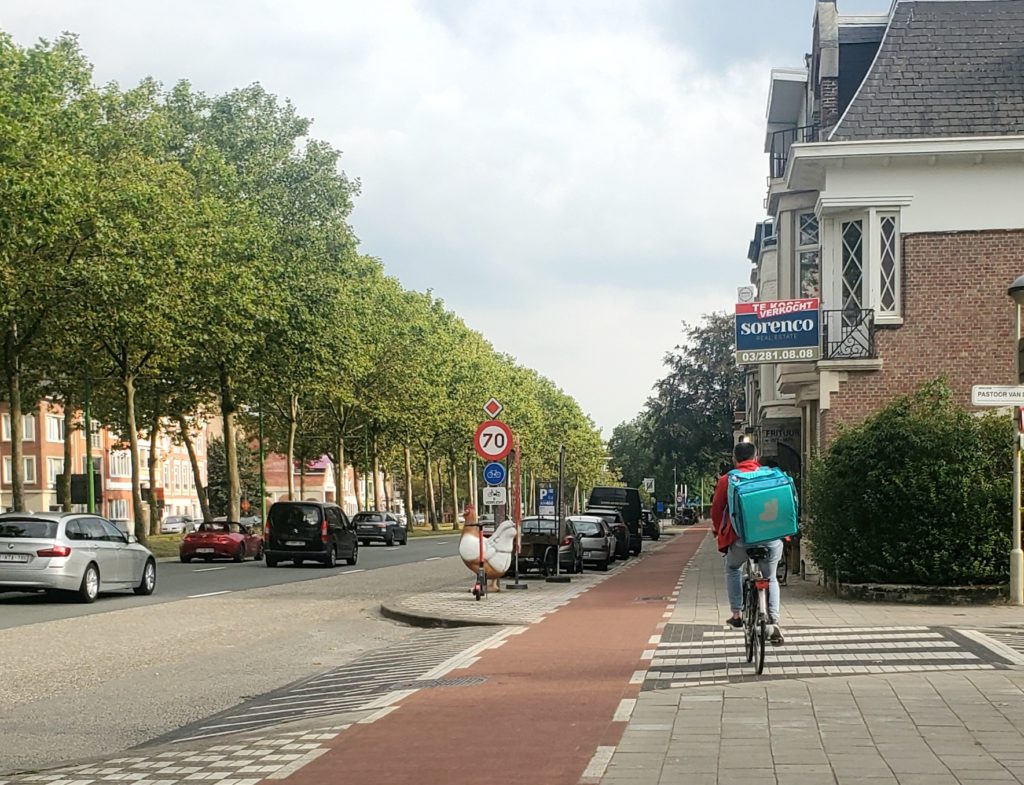The Labour Court of Brussels will hear a case on Thursday involving 27 couriers for Deliveroo, who are suing the platform for precarious working conditions.
Legislation is already underway to prevent such lawsuits in the first place by requiring the gig-work company Deliveroo to classify its couriers as employees, instead of independent contractors, according to De Standaard.
Classifying the workers who use the platform as independent contractors allows Deliveroo to avoid having to meet labour rights conditions and entitles them to lower tax rates.
Belgian political parties Vooruit and PS are behind the bill currently in the Chamber that would require this to change, entitling couriers for Delivertoo to the same labour rights that other working Belgians get.
“Everyone has the right to fair pay and strong social protection at work, including within the platform economy,” Member of Parliament Anja Vanrobaeys (Vooruit) and her PS colleague Sophie Themont say.
“You work in shifts, you don't choose your own customers and prices and you don't choose what clothes you wear when you work. You are actually completely dependent on an app to carry out your tasks,” Themont points out.
“Yet you have much less favourable work accident insurance than that of an employee. You also earn a lot less and live in uncertainty. That is the situation for many platform workers. We must put an end to exploitation. They must have a real status and guaranteed social rights.”
The legislation being proposed would reverse the burden of proof for platform workers: instead of Deliveroo couriers having to prove that they’re working more as a regular employee than a self-employed contractor in order to obtain basic labour rights, Deliveroo would have to prove that it’s couriers aren’t regular employees if they wish to continue denying them those rights that come with the status.
“Self-employment within the platform economy is still possible in the proposal, but must first be proven,” Themont said.
Related News
- Parliament demands equal social protection for gig workers
- ‘Nobody lives there’: Airbnb investors taking up scarce Brussels real estate
- Still no reform: A summer of broken promises for Uber drivers
An investigation by the Belgian labour auditorate showed that Deliveroo imposes a number of rules on the self-employed couriers that make the working relationship more like that of an employer and an employee.
But relying on a 2017 law, the company is sticking to its 'sharing economy model' with self-employed couriers, claiming that they don’t owe their workers any of the basic rights that come with standard employment.
With the support of the Belgian state, 27 couriers started a process in which they ask Deliveroo to recognise them as employees. They also want the company to report their performance to the National Social Security Office and pay them back-pay.
Trade unions ABVV and ACV have also joined in the suit.
Deliveroo continues to defend its labour model, citing flexibility as its biggest argument.
“In September, 3,400 candidates approached us to work as couriers. Our couriers can choose where and when they work, with the freedom and flexibility they want,” Rodolphe Van Nuffel, spokesperson for Deliveroo Belgium, told De Standaard.
But a recent VUB study showed that precarious working conditions for couriers are tied to poor wellbeing overall.
“Various factors such as long and irregular working hours, the lack of social security and low wages make couriers an extremely vulnerable group,” said researcher Elief Vandevenne.

